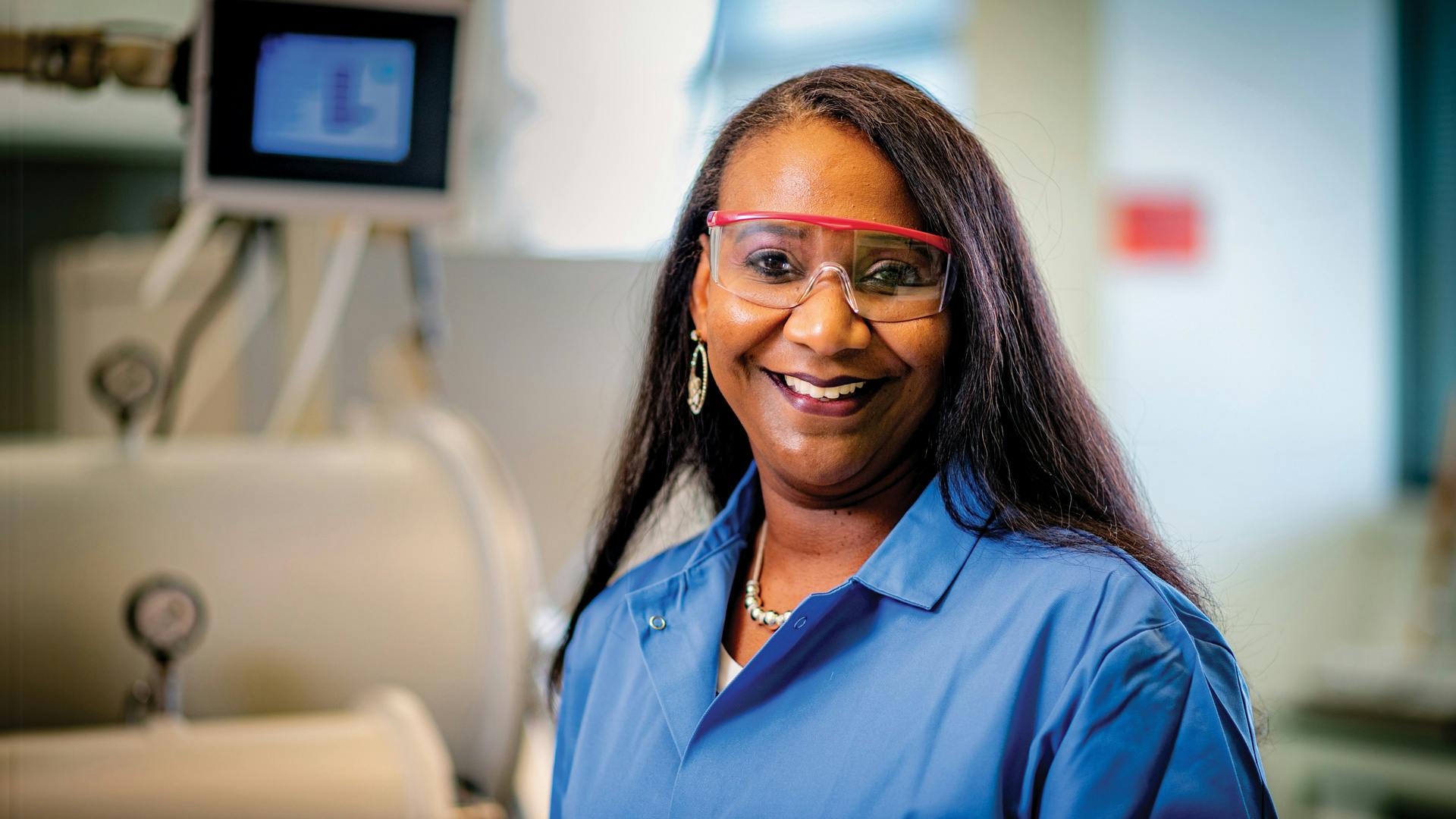They’re a million times smaller than a hair follicle on your head.
But they can be used to solve some of our biggest problems.
Dr. Sherine Obare has spent her career studying nanomaterials – natural and manmade substances that can be measured in nanometers – and their real-world applications.
The dean of the Joint School of Nanoscience and Nanoengineering leads a research team that explores how nanomaterials can be used to address some of society’s most pressing issues: antibiotic resistance, food safety, and environmental pollution, to name a few.
Over the last decade, Obare has secured more than $5 million in federal grants to advance the emerging field of nanotechnology.
“Nanotech has the ability to change the way we address different types of problems because it brings an integrated approach,” Obare explains. “When you’re making a nanomaterial, you start with the fundamentals of chemistry. When you’re trying to understand how a nanomaterial behaves, physics comes into play.”
Nanotech has the ability to change the way we address different types of problems because it brings an integrated approach.
– Dr. Sherine Obare
It’s this kind of work – research that bridges disciplines to impact human lives – that excites Obare.
“We have an opportunity to really think about the big problems that communities are facing right now. How can we, as scientists and engineers, use our knowledge and the integration of the sciences through nanotechnology to address these issues?”
See video of Dean Obare.
See video of all the deans joining UNCG in the past two years.
Story by Alyssa Bedrosian
Photography by Martin W. Kane
